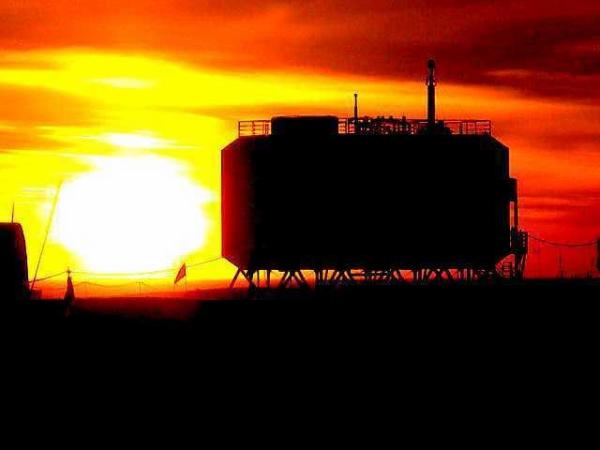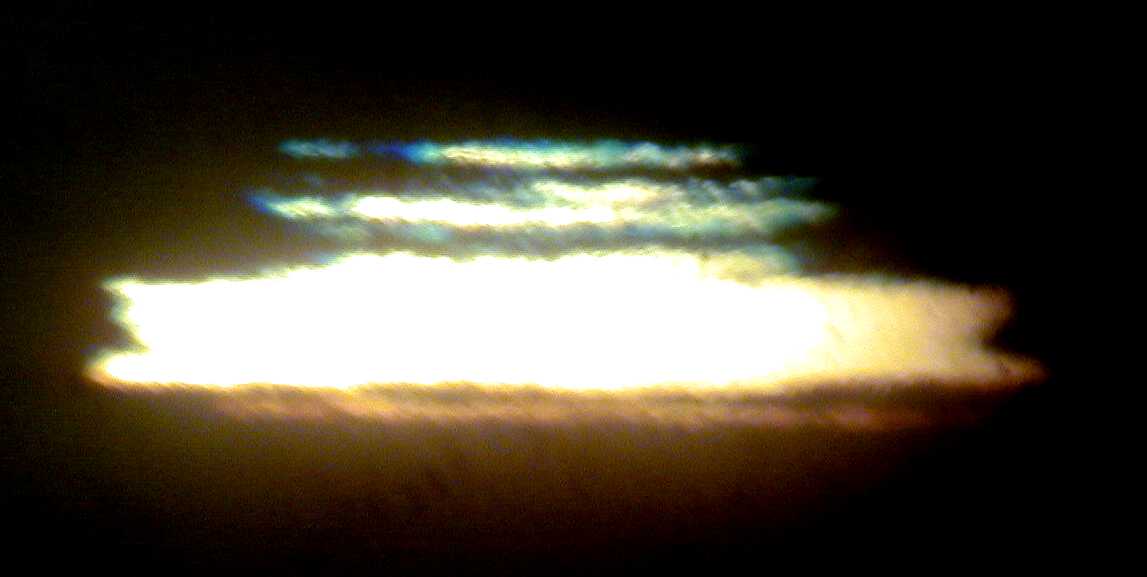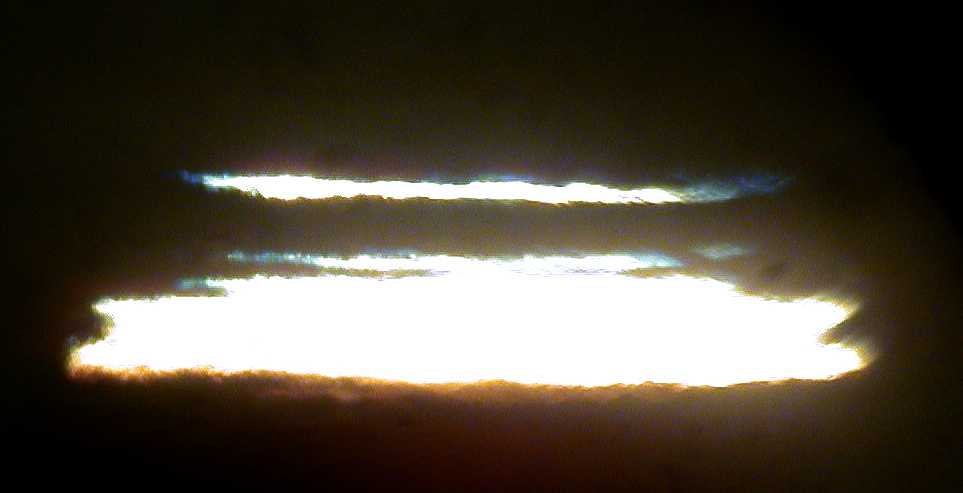Rodney had a combination of wildness, imagination, and dedicated self-discipline that make for great science. Rodney made many significant contributions to the science of Antarctic Astronomy. He believed in the work he was doing and was always willing to make the extra effort to get a good result. Underneath that rock and roll exterior was a guy who got to work early, stayed late, and kept a tidy, organized laboratory notebook. His perserverence in obtaining site data was crucial in demonstrating the quality of the South Pole site. His imagination sometimes led him to do things differently than the rest of us, usually to great success. We are deeply saddened by Rodney's untimely passing and by the loss both personal and scientific which it brings.
We will always remember Rodney as a wonderful friend and colleague.




I first met him at a party in '96. He seemed a pretty cool character. Then I went and saw his band play in '97. Then I knew he was cool. He brought a lot of fun to the Pole. We are coping the best we can. Rodney was a good mate and I'll miss him.
All the CARA members and Polies [...] are all deeply saddened by his passing but will do our best to remember him with affection. Us CARA boys will endeavour to keep AST/RO going this season as a tribute to Rodney.

I first met Rodney one morning in University Club campus hotel. He was tall. Also a bit soft spoken which meant when he had something to say it was worth listening.
We spent most of every day through the next week together. After work once we went picnicking with my wife, Robin, up Boulder canyon to some falls; he bought the beer. I had him over for a barbecue one evening after spending a full day in Rocky Mountain National Park, giving him what was probably the most thorough car tour I have ever been on there.
He snapped some pictures of my wife and I with his omnipresent camera and we took some of him. He considerately sent us some prints weeks after he had left.
He was a very thoughtful fellow. I enjoyed his company, and kept up with him rather sporadically via email after his visit. Now I miss him, and Robin does too.
On 17 May 2000 I attended the memorial service in Australia. The location was the Great Ocean Rose function centre, which has a magnificent view of the dramatic coastline near Torquay in Victoria where Rodney grew up and enjoyed surfing.
Around 150 relatives and friends of Rodney and his family were present. The service was very moving, with particularly fine speeches from Rodney's family and a few close friends. I had the opportunity to speak as Rodney's PhD supervisor and to convey condolences from his professional colleagues. I read the letter from the AST/RO group. I am very glad I attended, since Rodney's family and friends were not fully aware of the importance of his astronomical work and the esteem with which he was regarded. Given Rodney's quietness and humble nature, this is not surprising.
The family were very grateful for the many messages they have received from the astronomical community and from Rodney's friends at South Pole.
Here is a brief description of how Rodney got into the Antarctic astronomy business.
He came to speak to me in 1993, asking if there were any interesting PhD projects on offer. After consulting with Michael Burton and John Storey, I suggested that we needed someone to work on microthermal measurements of the atmosphere at the South Pole. The project would be in collaboration with Jean Vernin at the University of Nice, would require the ability to speak French, and he would need to be ready to leave for Nice in 6 weeks. Rodney nonchalantly said ``ok, sounds interesting, I'll do it'', and he did. We paid for a language course, and Rodney was fluent in a new months. During his PhD he picked up skills in electronics and computing with equal ease.
The memorial service gave me a much better understanding of the sort of person Rodney was. To those of you have only briefly known him, he probably struck you as a quiet, unassuming, somewhat unusual fellow; to those who worked with him, it became quickly obvious that he was rather clever; to those who took the time to get to know Rodney, it was apparent that he was a remarkable human being with many fine qualities. It is to my eternal regret that I did not progress to this final stage.
To conclude, here is the first paragraph from Rodney's PhD thesis, from the first of 120 pages containing similarly elegant prose:
``One hundred years ago, the Antarctic was a mysterious, treacherous and unforgiving land; the last frontier, beyond the edge of the known world. It was a struggle for explorers just to survive in the stormy seas of the Roaring Forties, and on the ice-bound coast, let alone carry out any of the scientific research that was ostensibly the main goal of their expeditions. The story of the first expeditions to the geographic South Pole of Amundsen and Scott is one of the great dramas of modern times. Not as widely known, but no less worthy, were the journeys of such explorers as Shackleton and Mawson, who travelled deep into the icy interior of the continent on epic voyages of exploration and discovery. The history of this heroic age of exploration remains an inspiration to scientists working in Antarctica almost a century later.''
Our heart-felt condolences go out to his family.
How do you remember a person who has contributed immeasurably to the causes we work for? If there can be such a person as an Antarctican then you certainly qualify to be one. My own first experience in Antarctica was putting together the experiment you had designed while in Nice, climbing up and down the Met Tower, deploying the sensors which were to give us our first real feel for what the atmosphere was doing to our observations. An insight that you gave to us and then developed further into a full PhD thesis. I knew you were truly committed to Antarctica in 1997, while in Chicago following a meeting there on Antarctic Astronomy. In the hotel bar one night you talked passionately about wanting to winter-over at the Pole, and the science you could accomplish if given the opportunity. It was a passion I knew immediately was what was needed not only to survive an Antarctic winter, but to flourish in it. In 1998 you then proved yourself, nursing our infrared telescope through the winter and in the most testing of conditions showing that astronomy from Antarctica could be a reality, not just a dream. The first scientific paper resulting from your work on this telescope has just been accepted by the Astrophysical Journal. It is a tragedy you have been lost to us, with so much more to give. We will miss you Rodney, and hope we can continue the journey you played such a part in starting.
It was always pleasant to be around Rodney, and I shall remember my time with him. Additionally, he was an important contributor to the success of the US Antarctic Program because of the excellent work that he did for astronomy at South Pole.
The one thing that I will never forget about Rodney was his unflappable, relaxed, serene personality. He took everything in his stride and enjoyed everything that came his way. I hope that a little of this rubbed off on me.
I passed the news around the Anglo-Australian Observatory. Many astronomers here had met Rodney over the years. They all wanted me to tell you that Rodney will be greatly missed in the astronomical community as both a scientist and as a person. His commitment to science and his attitude to life made him perfect for facing the challenges of researching at the pole.
I will miss Rodney and I will never forget him.
The ASA General meeting that year was a blast. Rodney was the only one of us who spoke French so it was his duty to translate the drinking songs taught to us by a visiting student. I believe anyone on that particular meeting can still sing it word for word.
We were a great team. Among all the pubs, parties, trips, and pool games were the 8 and more hours a day we spent in each others company. Those guys taught me many of the important things I had to learn and they are still my best friends. I can't believe Rodney is no longer a part of that. It has been a few years since we last shared an office but I still feel as if one of the team has been unfairly taken away.
When I first met Rodney at UNSW, I did not take much notice and did not interact with him since he was fairly quiet. Then, at the end of this summer's antarctic campaign, I met him again, and I started to talk with him: I realized immediately he was a nice, clever and competent person.
Let me say that to die while doing what we like and wish ourselves is better than to die, even older, disappointed from the life.
Repose en paix.
Rod, I never told you so, but I always looked up to your achievements. You set the standard that I tried to follow through my own studies. I am sure you have touched others in a similar way. Above all else you were a decent bloke, and a true individual.
We will all miss you Rod.
During those two years, I met my wife, Rikki. We all became very close. The day following Rod's death we dropped some flowers into the Rhine river, in the hope that they will take his spirit to Amsterdam. I know he would have felt very comfortable there.
I will miss him, as I am sure a lot of other people who were touched by him will as well. One thing that I remember he always said, was that the solution to any problem is to go down the pub and have a few drinks.
Later. Andrew xxxxx
Rod, you were taken from us too soon, and we could not say goodbye. May you rest in peace.
Always in our hearts, Joy and Paul Tol, Adelaide, South Australia.
It was only later, after station closing, that I started to see more. He had started teaching an astronomy class, once a week, which was packed full of station members from all walks of life; scientists, cooks, electricians, etc. I quite enjoyed his lectures, and also started to see the astronomer side of him. He obviously loved his work, knew it well, and was willing to share his knowledge with others.
I work in the back of science and would often seem him as he dropped by, to play with his computer. We would exchange the odd jovial comment, and that was about it. I would also often see him and his girl friend Sonja, in the galley. They would occasionally come and sit down at my table. I hardly knew them and they hardly knew me, but it felt good to chat with them --- they made me feel right at home. I have never seen a more perfect couple.
The more I got to know Rodney, the more curious about his general nature I became. Rodney was a very talented man about station. His knowledge spanned areas of music, chess, astronomy, and poker. He also had quite a unique sense of humor, and he never looked down at anyone.
The day of his death was quite a sad occasion for me; I wept. I did not know him well, but he certainly left a mark on my journey through life. I just wish I had the time to know him more.
Now, every time I look up at the stars, I will see Rodney...
I have always had a fascination for Antartica as I'm orginally from Dunedin NZ from where the NZ bases are serviced. My University (Otago) had many programs and associates there.
May I send to you all down there my sincere sadness and to Rodney's parents for your collective loss. Rodney would want you to continue with the same passion that drove him and for you all to move forward.
Cheers and sincere thanks for sharing his life with mere mortals like me.


 Center for Astrophysical Research in Antarctica
Center for Astrophysical Research in Antarctica